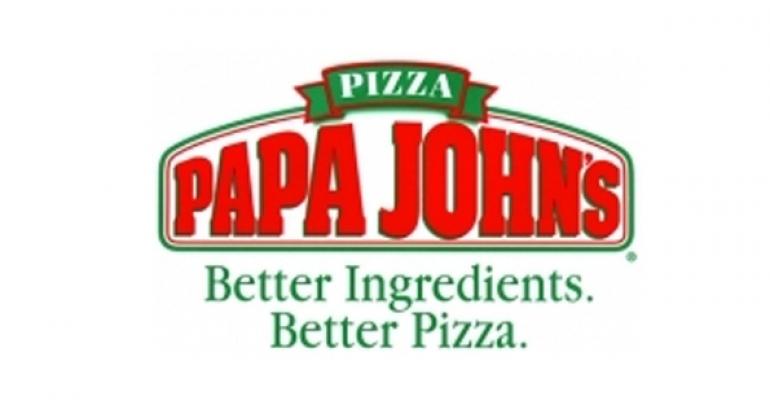A U.S. District Court judge in Seattle has certified a class-action lawsuit against Papa John’s International Inc., calling for as much as $250 million in damages for the alleged transmission of 500,000 text messages to consumers who claim they did not consent to receive such texts.
Three named Papa John’s customers and potentially many more are suing the Louisville, Ky.-based operator or franchisor of 4,000 Papa John’s Pizza restaurants for allegedly violating the Telephone Consumer Protection Act.
Each alleged violation of the act, which consists of a brand sending an unsolicited advertisement via phone call or text message without prior consent, carries up to $500 in statutory damages.
Judge John C. Coughenour certified the suit as class action Friday in the U.S. District Court for the Western District of Washington.
The plaintiffs’ attorney, Donald W. Heyrich of Seattle-based Heyrich Kalish McGuigan PLLC, said in a statement that the suit “should be a wake-up call to advertisers.”
RELATED
• Papa John's raises 2012 profit, sales guidance
• Papa John's to give away two million pizzas during NFL season
• More restaurant industry policy news
“Consumers do not want spam on their cell phones,” Heyrich said. “If you do not have permission from your customers, do not send them text messages. It’s as simple as that.”
As of press time, Papa John’s International had not responded to requests for comment.
The controversy develops
The lawsuit, first filed in February by Washington state resident Maria Agne, stems from text messages Agne claims she received without her consent in April 2010. The texts, which promoted Papa John’s products and offers, allegedly came from marketing services provider OnTime4U, which had contracted with several Papa John’s franchisees in the Pacific Northwest.
OnTime4U is named as a defendant in the class-action suit, as are Papa John’s International Inc. and franchisees Rain City Pizza, Rose City Pizza, Seattle PJ Pizza, Papa Washington, PJ Sound Pizza, Papa Washington II, Edward Taliaferro and Kevin Sonneborn.
According to Coughenour’s written order certifying class action status, text messages allegedly were sent to thousands of Papa John’s customers without their consent because OnTime4U obtained the cell phone numbers of customers from the implicated franchisees. Those numbers were taken from the PROFIT customer database that Papa John’s franchisees can access from their point-of-sale systems.
OnTime4U allegedly indicated to the franchisees — who operate as many as 21 Seattle-area units in Rain City’s case and 12 Portland, Ore.-area restaurants in Rose City’s case — that those messages would not be considered spam or violate the TCPA because those customers had previously ordered a pizza from the franchisees, establishing an “existing business relationship,” which exempts calls and texts from oversight of the TCPA.
According to Coughenour’s order, Kevin Sonneborn, franchisee of PJ Sound Pizza LLC, testified that customers were not asked for their permission to send text messages before their phone numbers were given to OnTime4U.
The franchisor, Papa John’s, is implicated in the lawsuit because the plaintiffs allege it encouraged franchisees to try text-marketing campaigns through providers like OnTime4U. “There is no evidence that Papa John’s contracted directly with OnTime4U,” Coughenour wrote. “But the plaintiff alleges that Papa John’s directed, encouraged and authorized its franchisees to use OnTime4U’s services. Preliminary discovery supports her allegations.”
According to the order, Sonneborn also testified that when he told his franchise business director, or FBD, that a test campaign of text blasts from OnTime4U did not achieve desired results, the director told him to “try it again.” In the discovery process, Papa John’s also produced emails from two different FBDs encouraging their franchisees to try a campaign with OnTime4U. Evidence also appeared showing that OnTime4U made a presentation to Papa John’s franchisees at the 2009 “Operators Summit” conference held in Las Vegas.
Evidence brought forth in the discovery process also showed that Papa John’s disavowed OnTime4U as a marketing services provider once the situation with the Seattle-area franchisees came to light. After several complaints about unsolicited text messages came to the company’s customer support department and the ensuing investigation turned up OnTime4U’s actions with the Pacific Northwest franchisees, Papa John’s sent a memorandum to all corporate and franchised stores on April 27, 2010.
The memo, which was cited in Coughenour’s written order, read, in part: “Papa John’s legal and digital marketing department do not believe that the transactional-business exception applies in this context and have concluded that the practice and process of sending UNSOLICITED messages to mobile devices is most likely ILLEGAL.”
Franchisees that worked with OnTime4U were directed to reclaim all customer data sent to the marketer, and Papa John’s demanded that OnTime4U return or destroy any customer data taken from the chain’s POS system.
“In this case,” Coughenour wrote, “the plaintiff has come forward with affirmative evidence that Papa John’s had at least a hand — and a common hand at that — in franchisees’ decisions to enlist OnTime4U to send text messages to their customers.”
Other TCPA precedents
Papa John’s is not the only restaurant chain to be accused of skirting the TCPA recently. In July, a federal judge dismissed a lawsuit brought against Taco Bell, which alleged that the quick-service chain violated TCPA by sending a final text message to somebody confirming his decision to opt out of a text marketing program.
District Court Judge Marilyn Huff ruled in favor of Taco Bell, agreeing that a confirmatory text does not violate the statute.
“To impose liability … for a single, confirmatory text message would contravene public policy and the spirit of the statute-prevention of unsolicited telemarketing in a bulk format,” Huff wrote in her decision.
Facebook, MySpace and Twitter all have been sued in recent years for similar allegations that their text messages confirming the opt out of a text marketing program violated TCPA.
Contact Mark Brandau at [email protected].
Follow him on Twitter: @Mark_from_NRN





